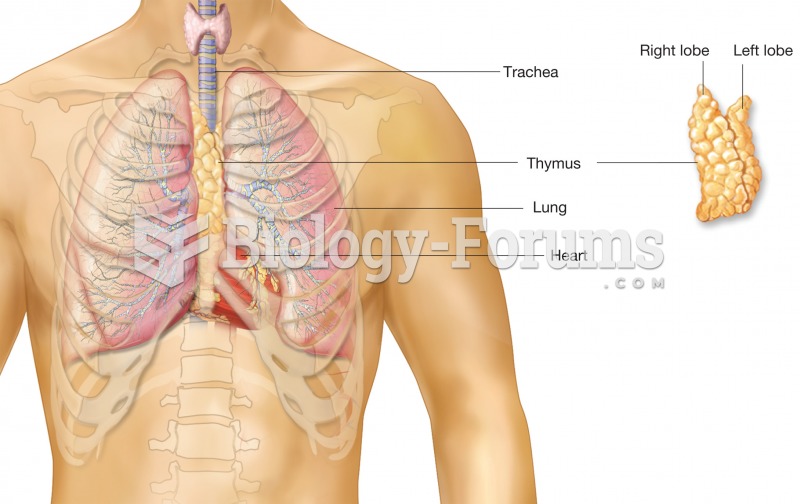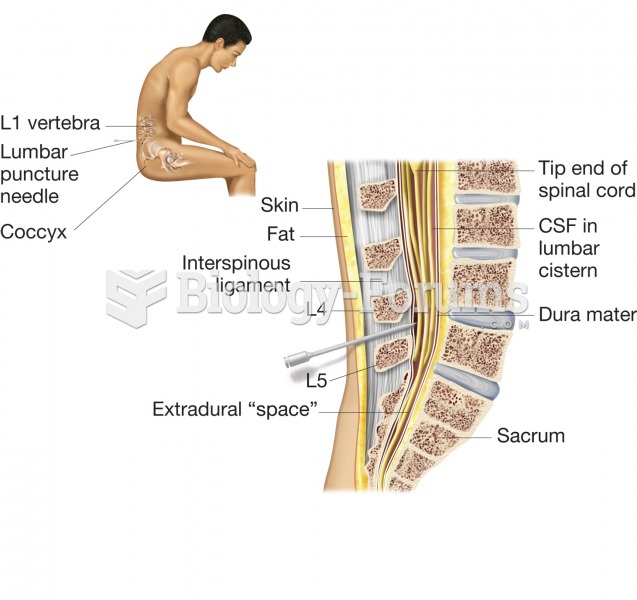|
|
|
Patients who cannot swallow may receive nutrition via a parenteral route—usually, a catheter is inserted through the chest into a large vein going into the heart.
Nitroglycerin is used to alleviate various heart-related conditions, and it is also the chief component of dynamite (but mixed in a solid clay base to stabilize it).
People who have myopia, or nearsightedness, are not able to see objects at a distance but only up close. It occurs when the cornea is either curved too steeply, the eye is too long, or both. This condition is progressive and worsens with time. More than 100 million people in the United States are nearsighted, but only 20% of those are born with the condition. Diet, eye exercise, drug therapy, and corrective lenses can all help manage nearsightedness.
More than 2,500 barbiturates have been synthesized. At the height of their popularity, about 50 were marketed for human use.
Hippocrates noted that blood separates into four differently colored liquids when removed from the body and examined: a pure red liquid mixed with white liquid material with a yellow-colored froth at the top and a black substance that settles underneath; he named these the four humors (for blood, phlegm, yellow bile, and black bile).
 The thymus gland. This gland lies in the mediastinum of the thoracic cavity, just above the heart. I
The thymus gland. This gland lies in the mediastinum of the thoracic cavity, just above the heart. I
 Position of the lungs within the thoracic cavity; anterior view illustrating regions of the lungs an
Position of the lungs within the thoracic cavity; anterior view illustrating regions of the lungs an
 Body cavities. (A) Lateral view of a sagittal section through the body. (B) Anterior view of a front
Body cavities. (A) Lateral view of a sagittal section through the body. (B) Anterior view of a front




